In a dining and drinking scene obsessed with what’s new and what’s next, it can be easy to forget the originals. The ones who stoked passion and started a movement. Beachwood BBQ & Brewing, now with multiple locations in Orange County, California, was one of those pioneers. The restaurant and its owner, Gabe Gordon (along with his wife, Lena), had a strong hand in revitalizing two downtown areas, bringing quality southern food to Southern California and spreading the word about local craft beer at a time when the big domestic brands dominated the market.
Gordon’s background as a chef is in fine dining; but his last stint in that space was over a decade ago at Savoury’s in Laguna Beach. Dissatisfied working for someone else, he decided to move on with the intention of opening his own place—which he initially thought would also be a fine dining spot. He soon found a small space in Orange County’s Seal Beach and signed a lease.
“I was going to open this little five-table restaurant and change the menu every day. Nobody was into it,” Gordon laughs. But he had already signed the lease and still wanted to pursue his own restaurant concept. “I figured, I’m twenty-eight years old; I can do fine dining later,” he says.
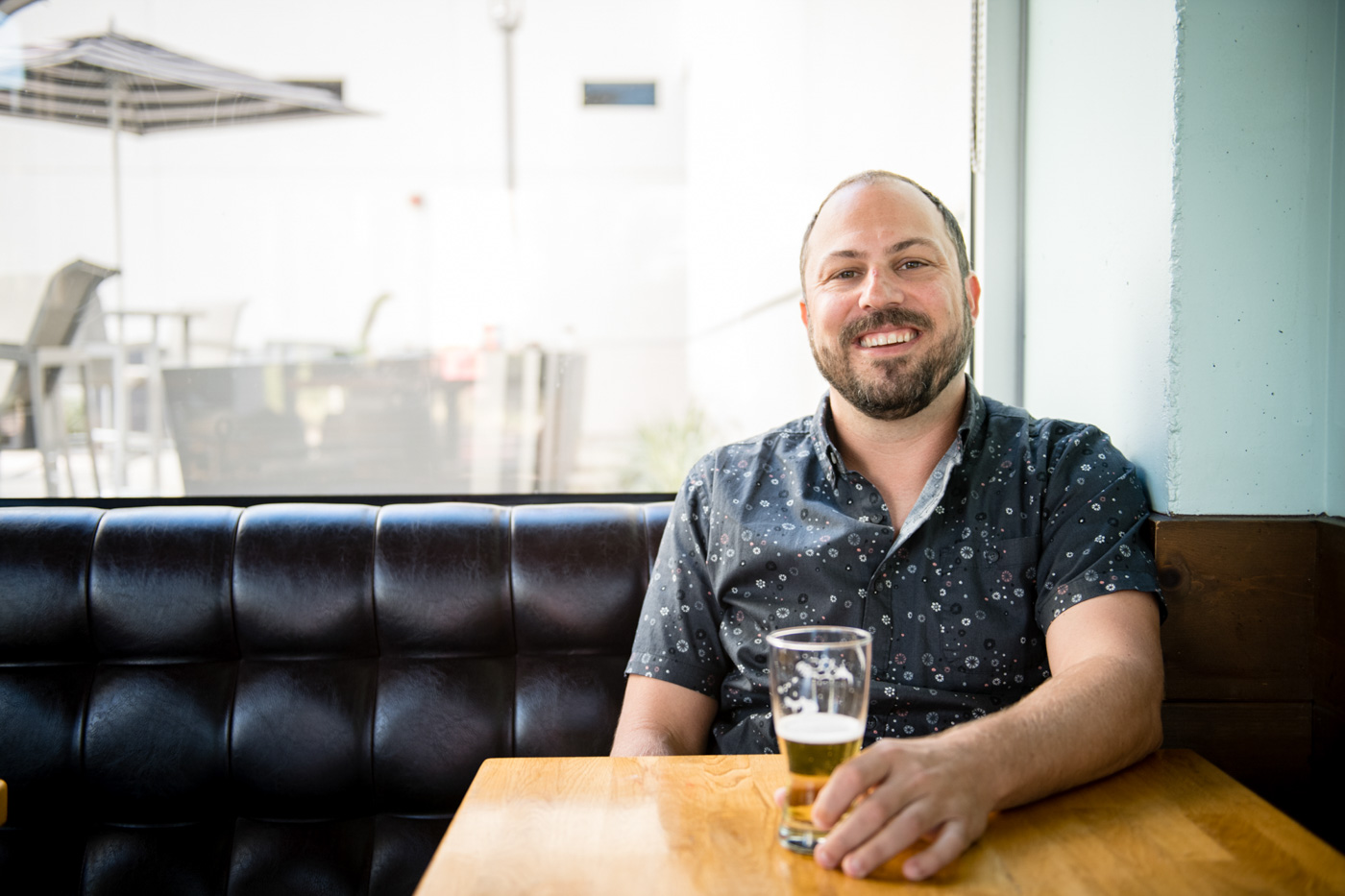
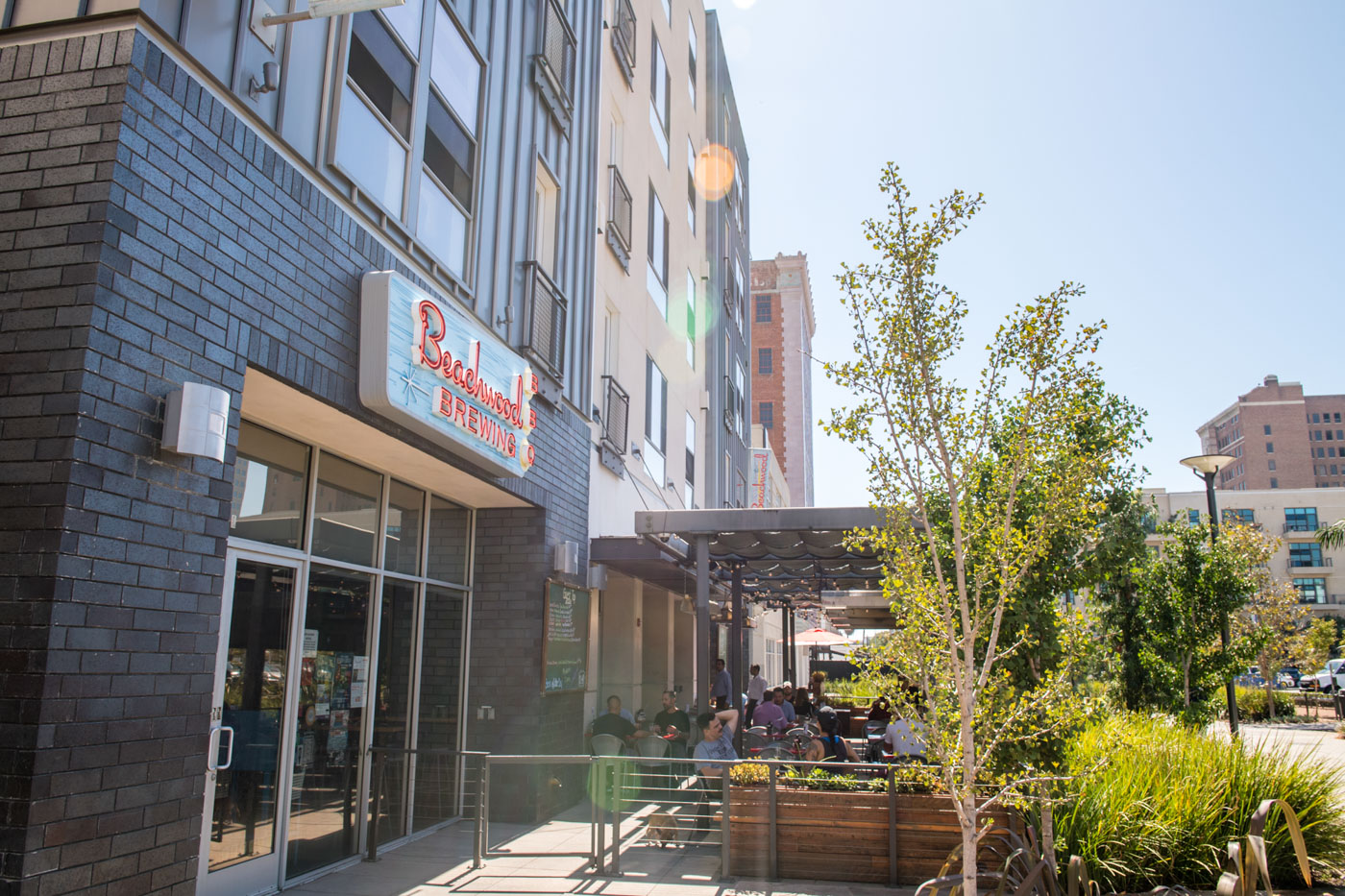
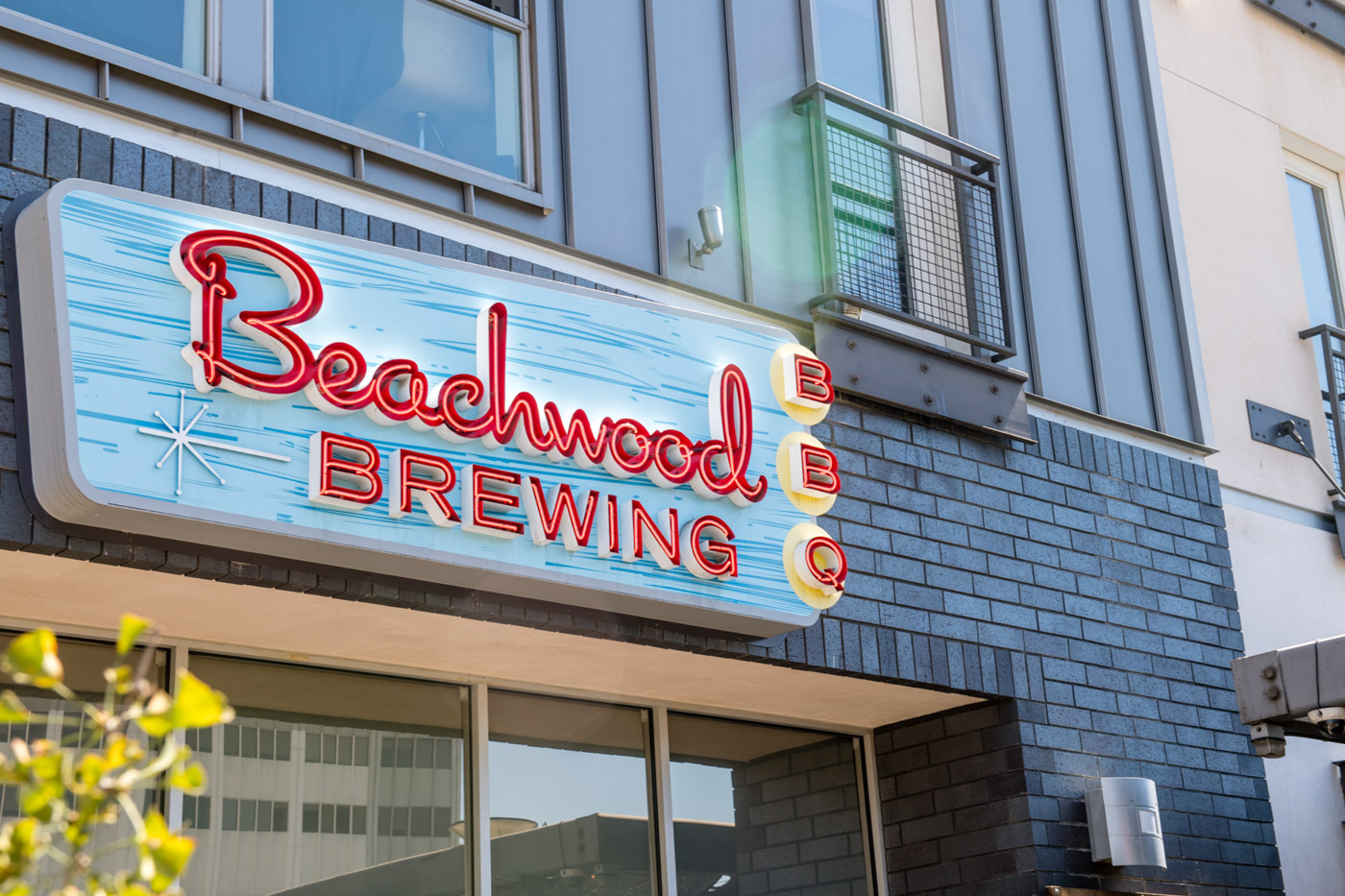
With a growing interest in Southern cuisine, Gordon decided to head into the direction of barbecue. Although originally from Northern California, the food he made always had a Southern influence. “It’s our country’s distinctly native food culture,” he says, also noting the absence of barbecue restaurants in the Southern California area.
That was twelve years ago. Beyond barbecue, one of Gordon’s hard-and-fast rules was that his new restaurant would only serve beer or wine that wasn’t sold at a grocery store. Wine was easy, he remembers, but at the time, beer was a unique challenge. The public looked to restaurants to show them wines they didn’t already know; this was not the same for beer.
“Restaurants had no problem serving grocery beer,” Gordons says. He wondered, if they were going to seek unique winemakers with innovative methods of creating their product, why would he not do the same for beer? And why only serve “the big three,” as he refers to the trio of beer conglomerates: Coors, Anheuser-Busch and Miller.
He made the decision—an unpopular one at the time—to not serve the major market beers. “Everyone said, ‘Good luck!’” Gordon tells me. “A Budweiser rep came in, saw all my signs for smaller breweries, and assumed I must have had a few kegs of the regular stuff behind the bar. I told him I didn’t, and he told me he’d come back in six months when I was closed.”
In addition to smaller foreign producers, another critical piece of the craft beer puzzle was presenting itself as the time, and that was found in Southern California’s burgeoning craft brewing scene—which had already been blossoming in San Diego and was poised at the time to spread up the coast into Orange County and beyond. Some of the early breweries Gordon bought from included Stone, Green Flash, The Lost Abbey, AleSmith, Tustin Brewing Company, and The Bruery, all of which were in the midst of their humble beginnings, but have since become household names in beer drinking circles and bars around the world.
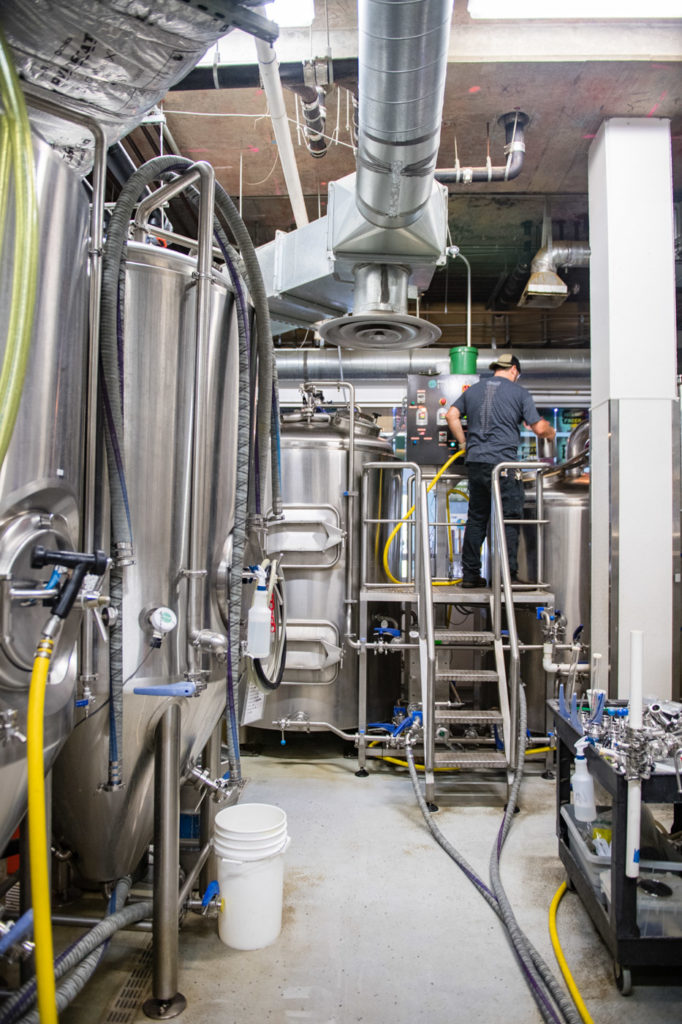
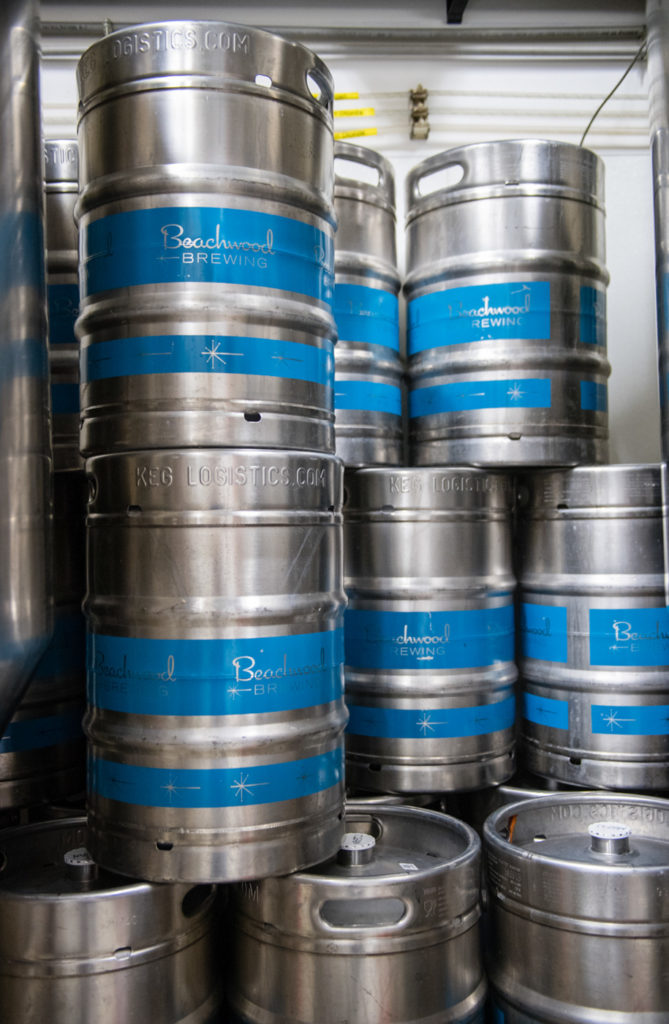

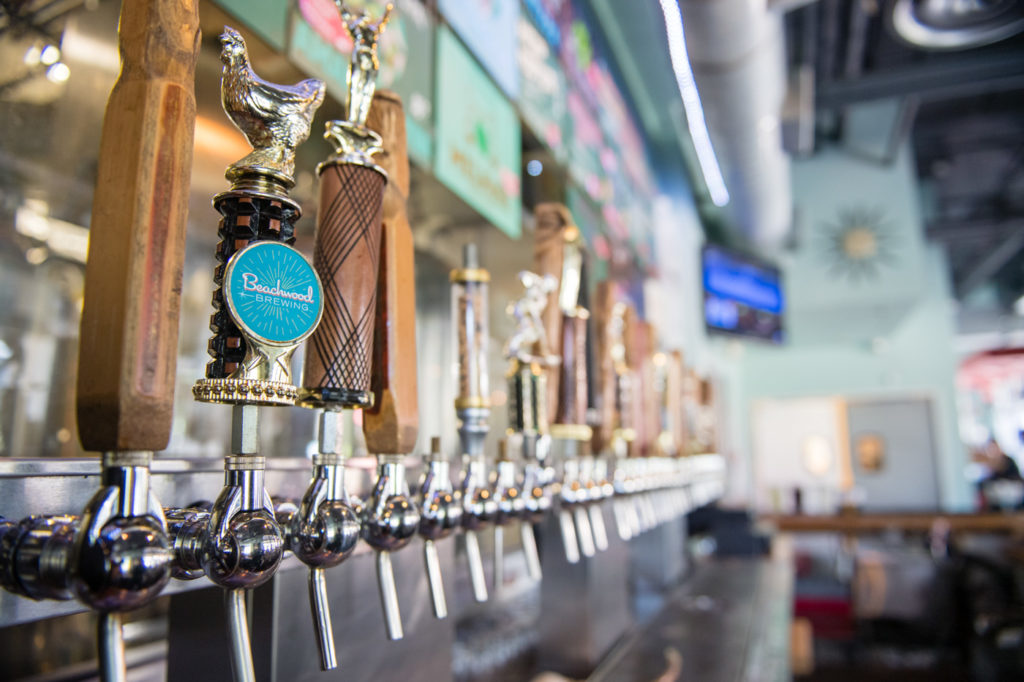
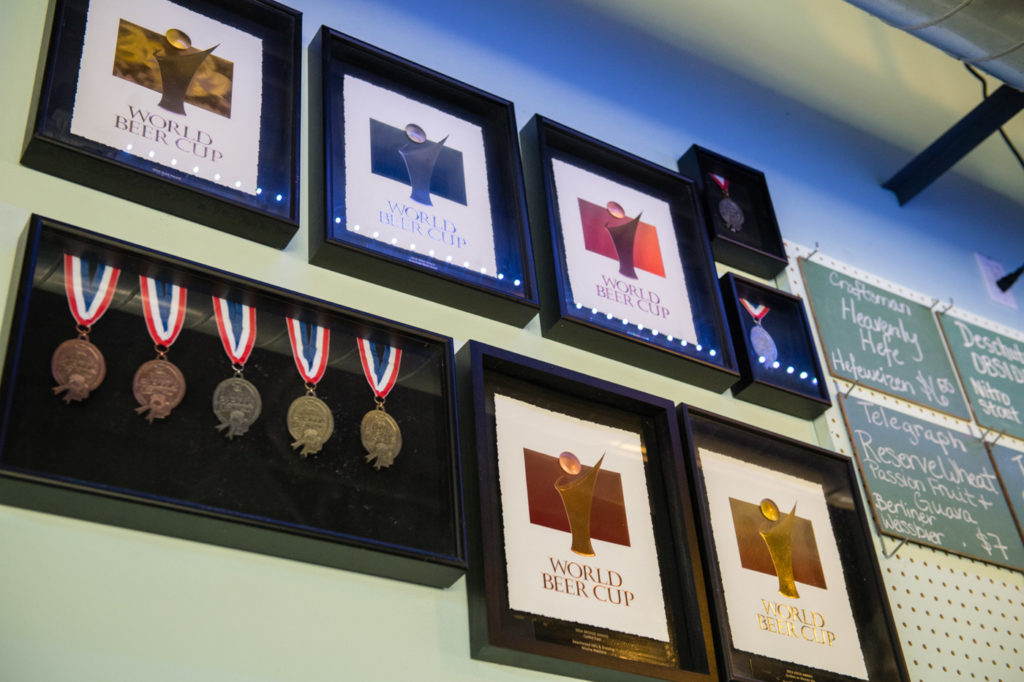
“Beachwood was one of the pioneers of good beer in Orange County, and one of our earliest supporters,” Jonas Nemura, Senior Director of Operations at The Bruery says. The Bruery opened a few years after Beachwood, and Gordon was one of its first customers.
“Gabe and his crew understood the beer we were making and weren’t afraid to take a chance on something unusual, or take the time to explain a beer to their customers,” says Nemura. “Our mutual love of beer and food provided an instant bond; a number of beer ideas were born out of late night conversations at Beachwood, especially when planning for the series of molecular gastronomy dinners we hosted together,” he continues, referencing dinners Gordon hosted at Beachwood as a nod to his fine dining pedigree.
Nemura also explains The Bruery’s Grey Monday, a treatment of their famous Black Tuesday imperial stout, with hazelnuts added, started as a proprietary single cask for a Beachwood collaboration dinner—the hazelnuts sourced from a family connection of Gordon’s then-bar manager.
Although he was an early adopter of the craft beer movement, Gordon wasn’t originally taking an intentional stand; he was simply applying the same principles to beer as he did to food sourcing. Beachwood BBQ never used mass-produced, commodity food or food products. He sought smaller purveyors—many local—and decided to buy beer within the same parameters.
At Beachwood, Gordon holds to a philosophy of rotating both wine and tap lists, a practice owed as much to an effort to keep things fresh as his indecisiveness—and logistical concerns. With the explosion of craft beer, Gordon found himself suddenly faced with an abundance of quality options, as well as limited cold storage, which forced some creative decisions with his beer offerings. Few restaurants in Beachwood’s early days were changing their lists regularly. As part of the promotional strategy to keep customers in the know, Gordon installed the “Hop Cam,” a live camera available on the restaurant’s website that displays what’s on draught at any given time.
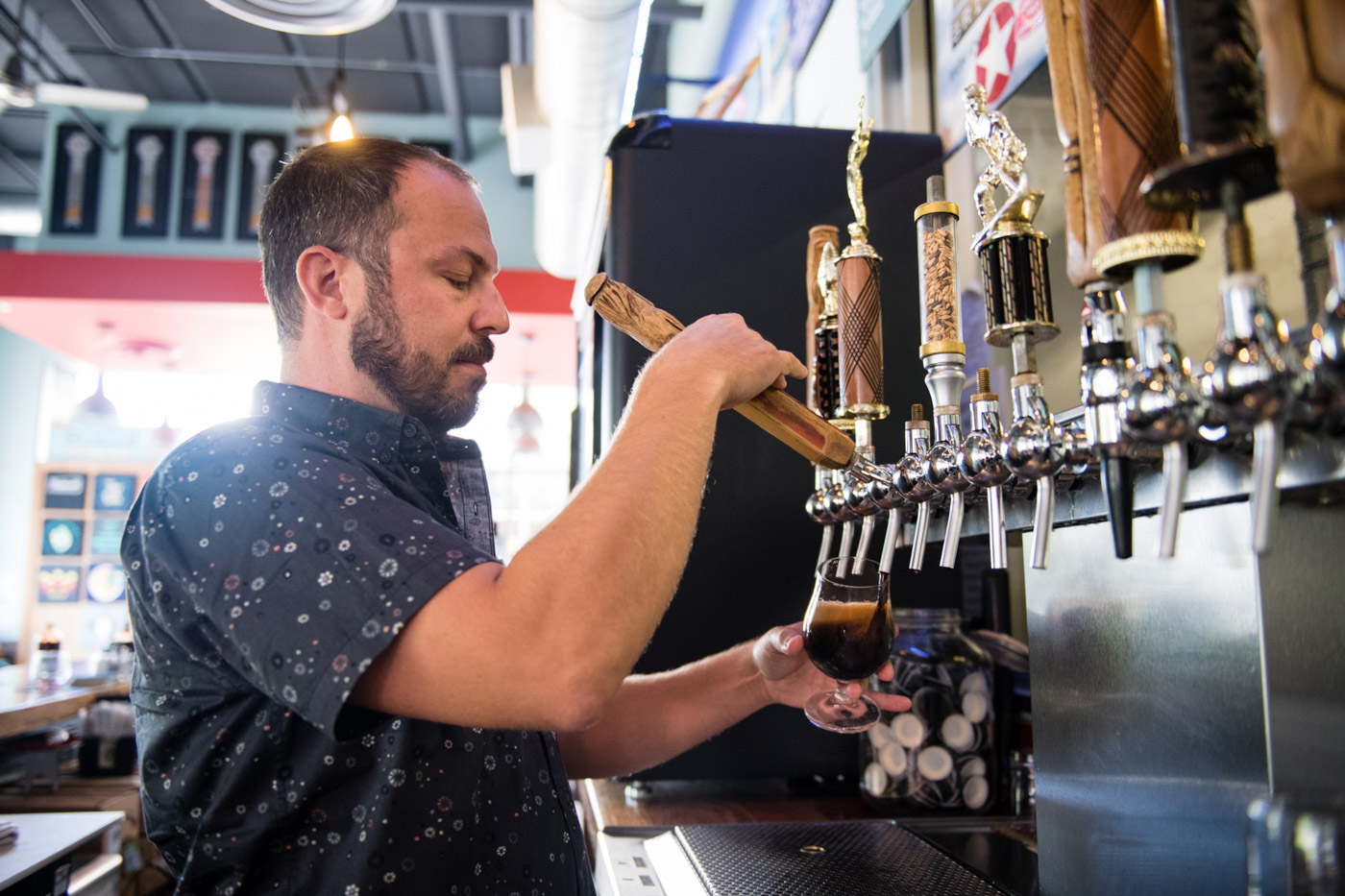
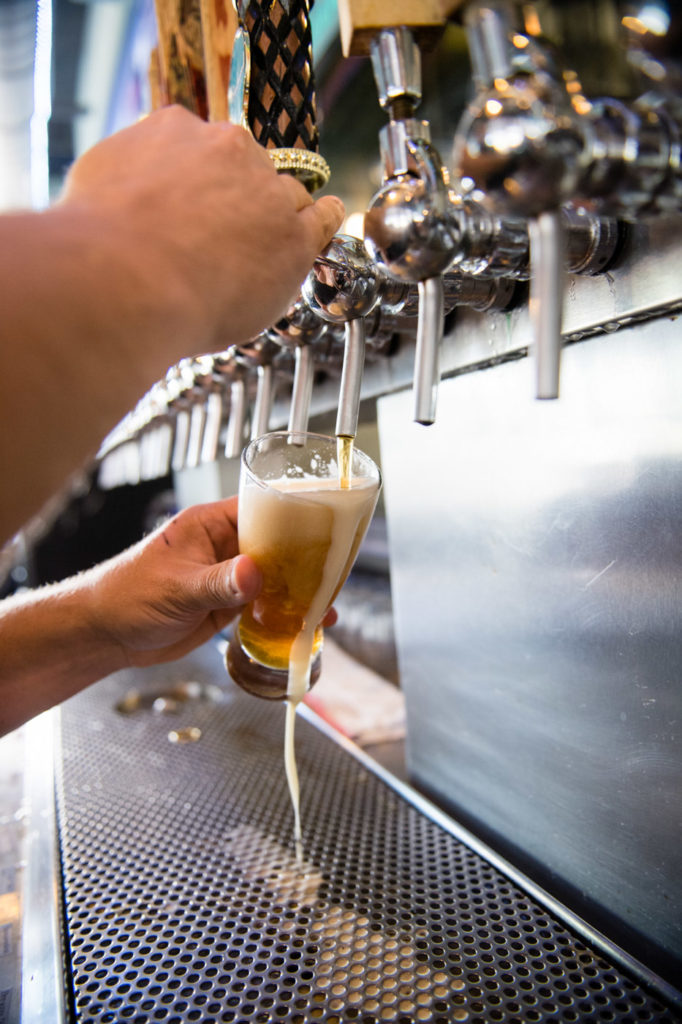
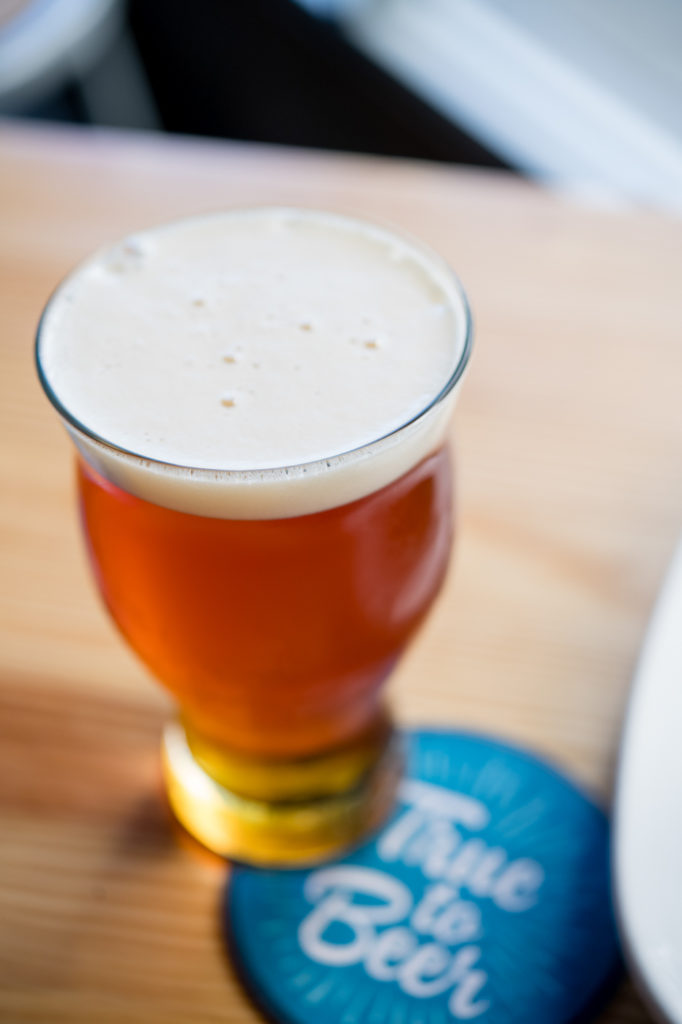
With the initial success in his small space, new opportunities began presenting themselves. He recalls 2007, one year into the Seal Beach location’s operation, when business at Beachwood was booming, and the restaurant was receiving accolades for its beer strategy, as well as its food. Then, a small store next to Beachwood went out of business, giving Gordon the opportunity to assume the lease and increase the restaurant’s capacity and bar—expanding from eight to ultimately twenty-two taps.
During the early days, Beachwood became a favorite of small, local breweries that made Gordon’s restaurant a priority for full allocations of rare beer. The restaurant and the beer program’s growth, however, threatened to make this impossible for small breweries who might be unable to meet the increased demand.
Gordon was concerned. “We were dependent on having those rare allocations,” Gordon remembers. “We had an epic tap list, so if we expanded, it gets worse? That wasn’t possible.” Instead, he began to consider opening his own brewery to supplement the Beachwood beer supply . The timing was serendipitous for a partnership with a longtime Beachwood customer and homebrewer, Julian Shrago, who “had essentially been staging at various breweries in San Diego. He wanted to open a brewery, I needed a brewer, so we decided to do it together,” Gordon says.
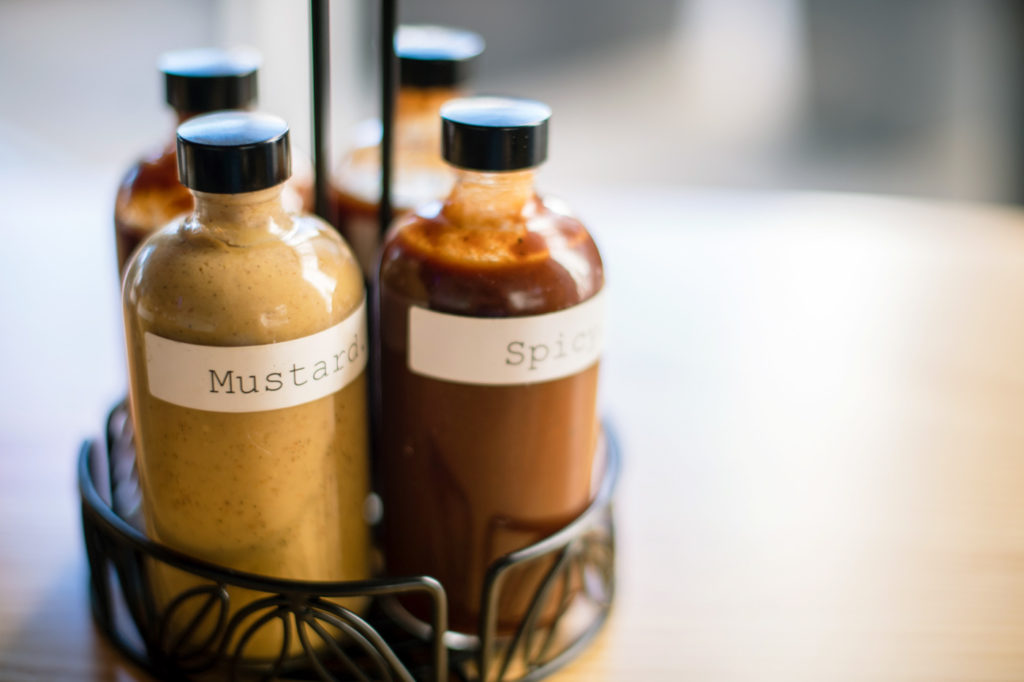
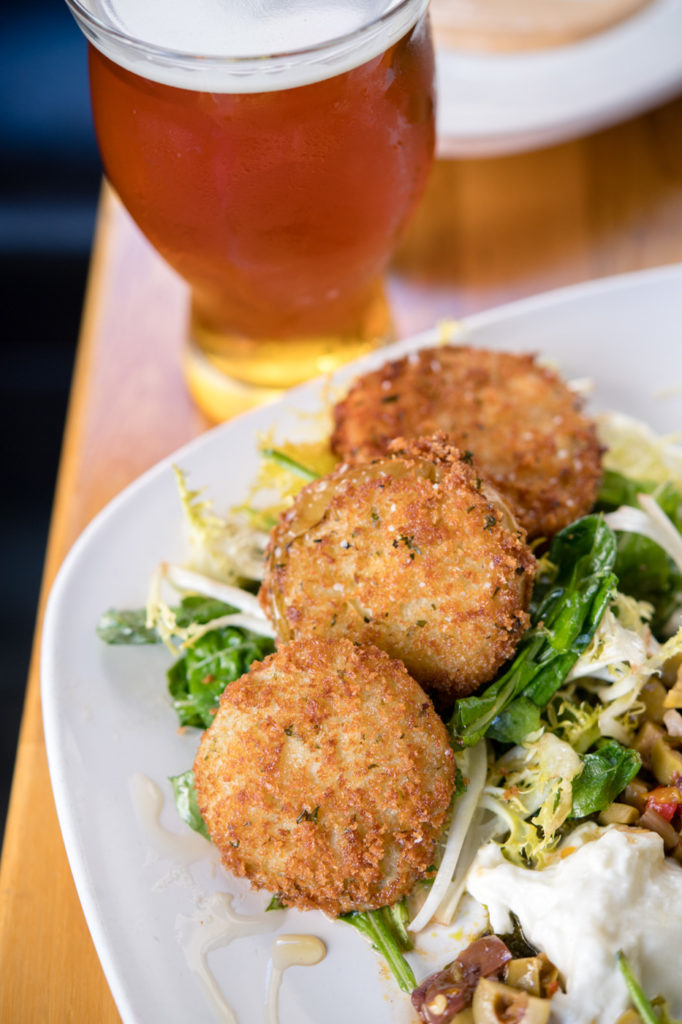
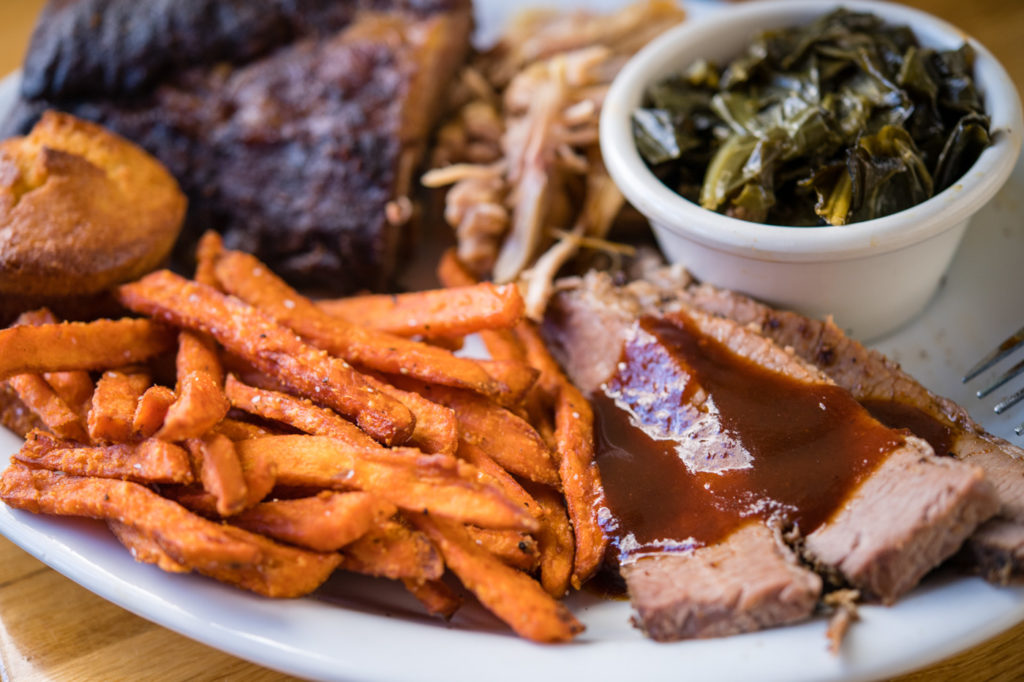
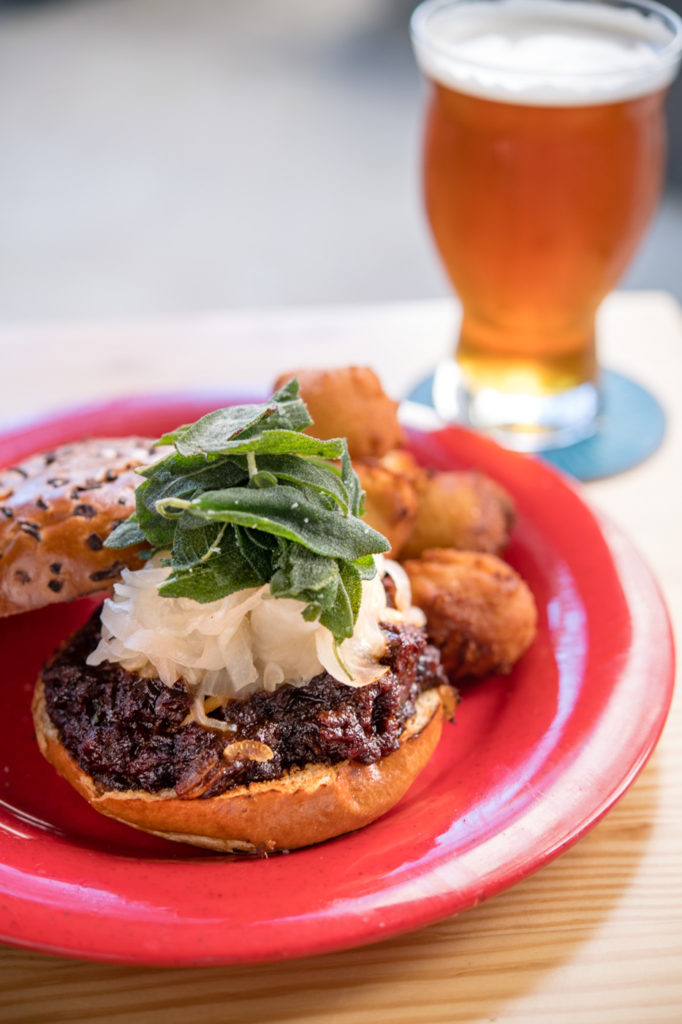
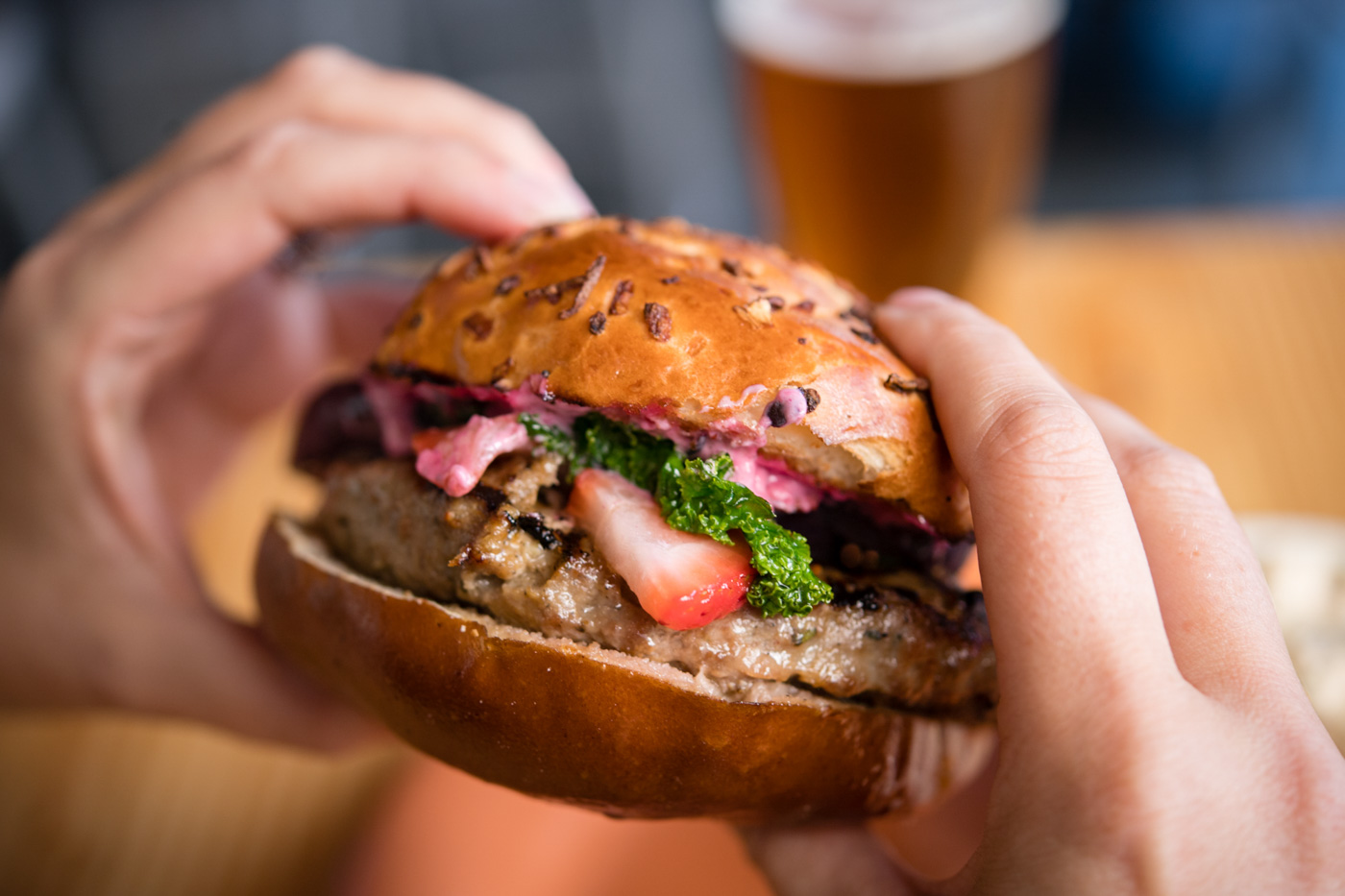
Today, Shrago is Gordon’s business partner and head brewmaster of the award-winning Beachwood Brewing. After establishing the brewpub in Downtown Long Beach in 2011, the brewing operation expanded again into an adjacent location called The Blendery in 2014. This location is dedicated to serving Belgian-style, Lambic-inspired sour beers—a professed obsession of Gordon’s. The Beachwood brand grew again in 2016 a with a tap room outpost in Huntington Beach.
In the twelve years since Beachwood BBQ & Brewing has opened, the food and beverage industries have seen seismic shifts nationally. “It would be hard to overstate the significance of Beachwood BBQ in developing and growing craft beer culture in Orange and Los Angeles counties,” Nemura claims. “The restaurant brought people into the culture while the bar, and especially their special events, provided a home for area beer geeks.”
As that culture grew, so did word of the Gordon’s SoCal BBQ spot; it became a destination for beer lovers from all over the world. And Gordon has been there for them, holding steady while continually innovating. Year over year, Gordon stayed ahead of the curve because he created for his community; he listened to the world around him, what his customers wanted in a restaurant, and what brewers needed in a supplier partnership.
It’s tempting to assume Gordon has an eye for trends, but perhaps his influence comes from having a distinct passion, by being uncompromising, and never sacrificing quality for something that might come more easily. Quietly, he knows if you build it—and build it well—they will come. And, at Beachwood, they’ll probably stay for a few beers.





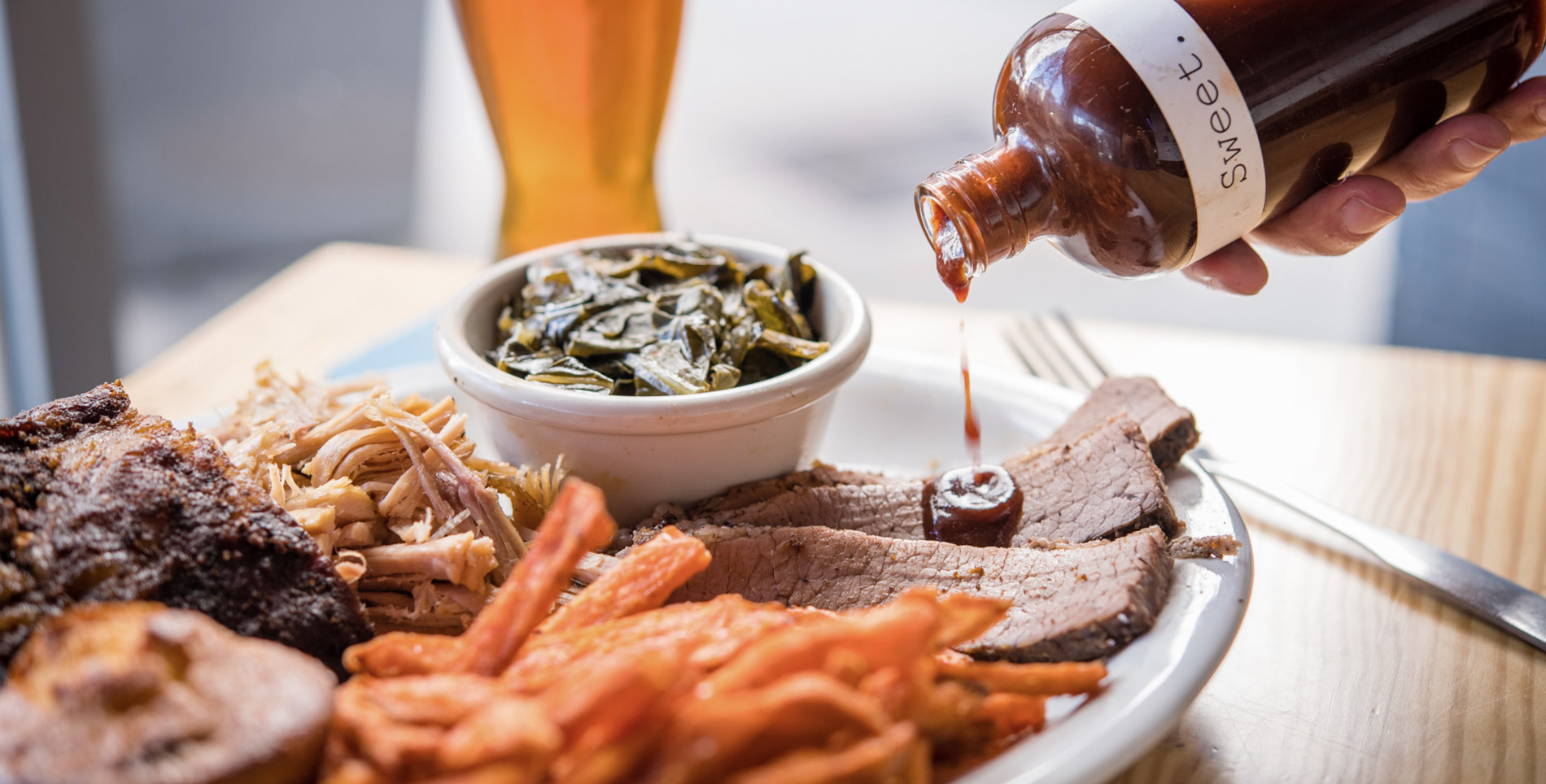

Our comments section is for members only.
Join today to gain exclusive access.